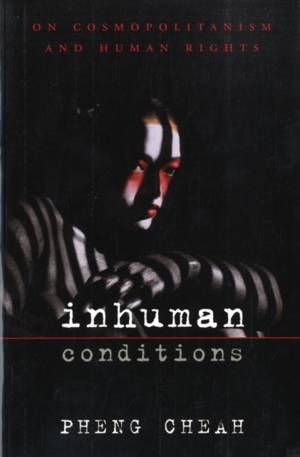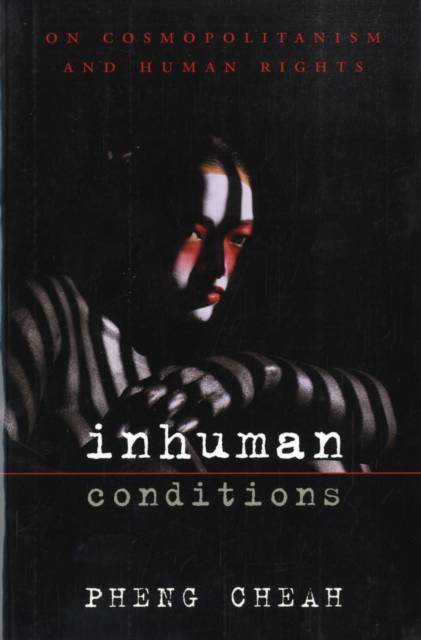
- Afhalen na 1 uur in een winkel met voorraad
- Gratis thuislevering in België vanaf € 30
- Ruim aanbod met 7 miljoen producten
- Afhalen na 1 uur in een winkel met voorraad
- Gratis thuislevering in België vanaf € 30
- Ruim aanbod met 7 miljoen producten
Zoeken
€ 69,95
+ 139 punten
Omschrijving
Globalization promises to bring people around the world together, to unite them as members of the human community. To such sanguine expectations, Pheng Cheah responds deftly with a sobering account of how the "inhuman" imperatives of capitalism and technology are transforming our understanding of humanity and its prerogatives. Through an examination of debates about cosmopolitanism and human rights, Inhuman Conditions questions key ideas about what it means to be human that underwrite our understanding of globalization. Cheah asks whether the contemporary international division of labor so irreparably compromises and mars global solidarities and our sense of human belonging that we must radically rethink cherished ideas about humankind as the bearer of dignity and freedom or culture as a power of transcendence. Cheah links influential arguments about the new cosmopolitanism drawn from the humanities, the social sciences, and cultural studies to a perceptive examination of the older cosmopolitanism of Kant and Marx, and juxtaposes them with proliferating formations of collective culture to reveal the flaws in claims about the imminent decline of the nation-state and the obsolescence of popular nationalism. Cheah also proposes a radical rethinking of the normative force of human rights in light of how Asian values challenge human rights universalism.
Specificaties
Betrokkenen
- Auteur(s):
- Uitgeverij:
Inhoud
- Aantal bladzijden:
- 336
- Taal:
- Engels
Eigenschappen
- Productcode (EAN):
- 9780674023949
- Verschijningsdatum:
- 1/01/2007
- Uitvoering:
- Paperback
- Formaat:
- Trade paperback (VS)
- Afmetingen:
- 156 mm x 233 mm
- Gewicht:
- 467 g

Alleen bij Standaard Boekhandel
+ 139 punten op je klantenkaart van Standaard Boekhandel
Beoordelingen
We publiceren alleen reviews die voldoen aan de voorwaarden voor reviews. Bekijk onze voorwaarden voor reviews.











